Members of the CreST Network
-
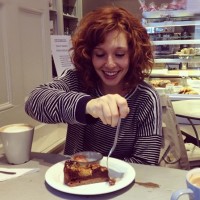
Amelia Chester
CreST
Events Organiser of the CreST Roadshow 3rd - 5th December.
-
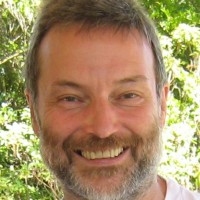
Alistair Edwards
University of York
My interest in synthetic speech goes back to my PhD, in which I looked at the used of speech and non-speech sounds as a means of making graphical user interfaces accessible to blind users. Since then I have continued an interest in the use of speech in a number of applications, some related to disability.
-
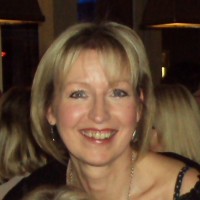
Debbie Haverstock
University of York
CreST Administrator
-
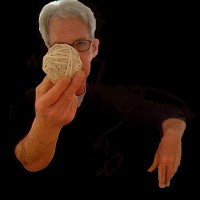
Kevin Jones
Composer, writer, sound artist
Kevin Jones is a composer, writer and sound artist whose music has been presented throughout the U.S., Europe, Australia and Canada. His dramatic works for radio have been broadcast internationally and he has written and directed more than a dozen music/theater works over the past two decades. He was Composer in residence at the American Institute of Musical Studies, in Graz Austria, and was formerly Co-Artistic Director of the Reeves/Jones Performing Group and Music Director for Joy Kellman and Dancers. His fiction has been published in the Minetta Review and the Portable Lower East Side and his performance works were included in the anthology Texts/Sound Texts, edited by Richard Kostelanetz. He has received grants and commissions from Meet the Composer, Composer’s Forum, the Harvestworks Foundation, Security Pacific Galleries, the Lower Manhattan Cultural Council and New American Radio. He was educated at University of North Texas, New England Conservatory and MIT. He studied with James Sellars, Merrill Ellis, Robert Ceely, Barry Vercoe and James Dashow. He currently resides in upstate New York, which is a very nice place to live. Works can be heard at www.kevinjones-soundart.com
-
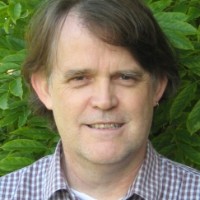
Christopher Newell
University of Hull
My interest is simulating 'liveness' in computer speech systems, particularly in text-to-speech synthesis. I am also interested in opera and performance. http://www.gravityisahat.com
-
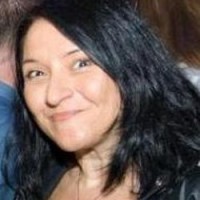
Maria Aretoulaki
DialogCONNECTION Ltd.
I am the founder and CEO of DialogCONNECTION Ltd, a UK-based consultancy focusing on Speech Recognition / Voice Recognition solutions, Interactive Voice Response applications (IVRs) and Voice User Interfaces (VUIs). With a background ranging from traditional theoretical Linguistics, to Machine Translation and Automatic Text Summarisation, I am an expert in speech IVR design / VUI Design for a better (less irritating!) user experience. I have spent the last 16 years envisioning, designing, documenting, developing, (usability) testing, tuning, optimizing and explaining speech recognition applications from the caller's point-of-view. I have worked for 30+ different organizations across 30+ verticals worldwide, incl. Raytheon / BBN Technologies, Apple, the UK National Health Service, Vodafone, CapGemini, Barclays, and Intervoice/Convergys, holding Senior positions in Pre-Sales and Post-Sales / Professional Services teams as a VUI Designer and Tester, Speech Analytics Consultant, IVR Caller Experience Analyst, Speech Technology Advisor, Technology Trainer, IT Project Manager and Product Development Manager. I have a most active interest in music, especially electronic dance (rhythm- and bass-rich), which I have been curating in the past 10 years both as a club and radio DJ and as a podcaster. I have also studied Music Production and Sound Engineering part-time, so all aspects of production and performance greatly interest and excite me. My goal in participating in the CREST forum and project is to encourage and promote creativity in Speech Interfaces through inclusion, innovation, experimentation, but also enjoyment and humour.
-
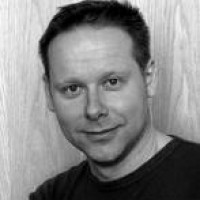
Matthew Aylett
CereProc Limited
Dr Aylett is a recognized world authority in speech technology research and development. Matthew was working at the International Computer Science Institute (ICSI) at Berkeley, California, before returning to Scotland in late-2005 to co-found CereProc. Prior to ICSI he was the senior development engineer at speech synthesis leader Rhetorical Systems (later acquired by Scansoft), which he joined at its formation. At Rhetorical, Matthew was responsible for the design, implementation, and testing of the company's core speech technology. Before Rhetorical, he spent five years at the University of Edinburgh researching speech and dialogue technologies. Dr Aylett holds a BA in Computing and Artificial Intelligence from the University of Sussex, and an MSc with Distinction and PhD in Speech and Language Technology from the University Of Edinburgh. He is CTO of Cereproc and also holds a Royal Society Industrial Fellowship supporting research at the University of Edinburgh. The project personify is investigating the relationship between expressive speech synthesis and the ability to create a sense of personality and presence in embodied conversational agents.
-
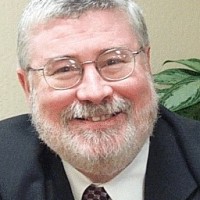
Bruce Balentine
EIG Labs
Chief Scientist EIG; interdisciplinary background in music, CS, and HCI; broad interest in artificial speech including ASR, TTS, biometrics and general AI; philosophy and ethics of machine intelligence and the role of machines in human society; extensive experience in theatre; composer, conductor, and writer.
-
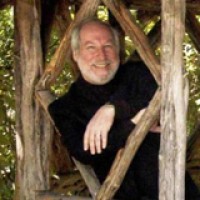
James Balentine
University of Texas at San Antonio
Professor of Music Composition, Theory, and Jazz Studies at the University of Texas at San Antonio. My interest in speech synthesis has to do with applications of speech patterns as a generating feature of music composition and improvisation, and Midi control of musical elements in speech synthesis.
-
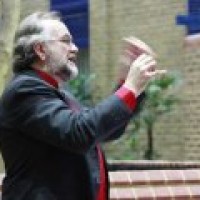
Paul Barker
Central School of Speech & Drama, University of London
Composer of several operas (several to his own libretti), musicals, music theatre works and concert works, performed, recorded and televised internationally. Most recently "El Gallo" (2009), an opera for 6 actors and two string quartets without text, has received over 100 performances by Teatro de Ciertos Habitantes at major festivals in the US, Spain, Mexico, Portugal and the UK, and is currently being filmed. His book, Composing for Voice was published by Routledge in 2004. Also works as stage director, conductor and pianist. Currently course leader of MA Music Theatre at Central School of Speech and Drama where he is a Professor of Music Theatre.
-
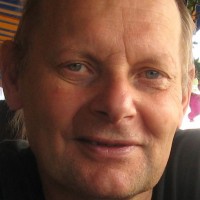
Art Blokland
Toshiba Research Europe Limited
Group Leader of the Speech Technology Group in Cambridge.
-
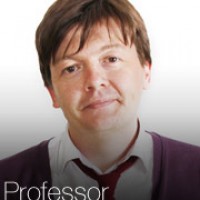
Mark Blythe
Northumbria University
Mark is a design ethnographer working in the field of Human Computer Interaction. His research interests include the ageing population, looming ecological catastrophe and the messed up world we’re in. Recent projects include collaborations with Goldsmiths’ Interaction Research Studio which were based at a residential care home and a nunnery. He is currently working on a project on banking for the older old. His other work draws on critical theory and YouTube to consider the impacts of new and emerging technologies.
-
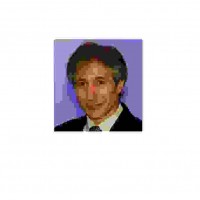
Leonardo Bottaci
University of Hull
Academically, my background is in mathematics and computer science with an interest in artificial intelligence. I spent a year as a secondary school teacher maths teacher but my second subject was dance and drama so I have, shall we say, an acquaintance with performance.
-
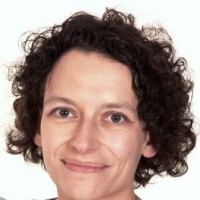
Jude Brereton
University of York
I am currently researching the effect of acoustic environment on performance, in particular the ways in which the room acoustic properties of the performance environment (concert hall, church, recital chamber etc) influence the vocal performance of singers and speakers. I have 8 years experience in co-ordinating AHRC and EPSRC funded research networks in the areas of voice, technology and audio. Research interests include : Singing and performance in acoustic spaces; Voices and virtual reality; singing voice-source characteristics; real-time visual feedback technology for singing training; voice analysis software; acoustic phonetics.
-
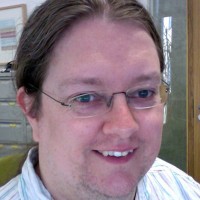
Rob Clark
University of Edinburgh
Researcher in speech synthesis and primary Edinburgh based developer/maintainer of the Festival Speech Synthesis system. Interests in prosody, expressive speech synthesis, the usability of speech synthesis and issues relating to the the integration of speech synthesis into speech enabled applications .
-
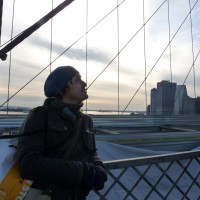
John Wedgwood Clarke
Leverhulme Artist in Residence, University of Hull
I'm a poet, writer and lecturer in creative writing. From 1 March 2012 - 1 March, I will be Leverhulme Writer in Residence at the Centre for Marine and Ecological Studies, Scarborough Campus, University of Hull. I regularly collaborate on public art projects involving poetry and the relationship between text and the visual arts and am currently co-artistic director and lead artist for Sea Swim - part of 'imove': a Cultural Olympiad Programme in Yorkshire www.imoveand.com. I have a DPhil in Modernist poetics from the University of York and a diploma in Professional Acting from the Guildhall School of Speech and Drama. I am UK and Ireland poetry editor for Arc Publications.
-

Caroline Collins
Enterprise Integration Group
BA (Hons) Linguistics at Manchester. MSc. Speech and Language Processing at Edinburgh. Couple of years at BT Labs doing research into Natural Language Generation. Voice User Interface consultant at Vocalis, Fluency (including 6 months in New York and 6 months in Boston), Vicorp, Verizon as well as running own consulting company. Now Senior Consultant with EIG doing requirements capture, dialogue design, usability testing, voice talent sourcing, prompt recording, and solution audits. Work with clients in UK, Europe, USA, and Africa.
-
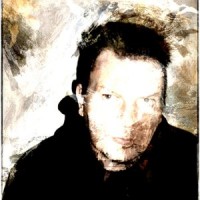
Daniel Doughty
University of Hull
I am primarily a musician, working under the name Kosmischeboy, producing electronic music. I often use spoken word, either poetry or found sounds in my work and am interested in the manipulation and processing of the voice in music. I have been involved for the last year in an online collaborative project called ‘Quiddity’ and I am a member of “Temple Music” and “Orchis”, two already well established Neo-Folk/Industrial projects which tour all around Europe. I play as part of “The Hausfrauen Experiment”, who received the accolade of record of the month in September 2010’s issue of Mojo Magazine. In 2012 i've been working as part of the Black Tempest project with the intention of producing a live "Space Opera" at the Supernormal Festival, Oxfordshire in August. After finishing a degree in Digital Media/Creative Music Technology I have began to explore the use of visual media with my music, in particular VJing, which I now specialise in as well. In my pre University life I acted as a freelance studio engineer around various studios in Lincolnshire and worked with top producer Gav Monaghan on two projects for musician/poet Dan Donovan. In addition to this I was a member of a touring rock band, Children Of A Lesser Groove, for several years and was involved in the promoting and setting up of many of the gigs we played all over the UK. Alongside my musical/digital media experience I have the benefit of a Retail Management career preceding my time at University, from 2001 - 2007. I worked for the company Games Workshop as initially as a Retail Manager and then as a Community Veteran.
-
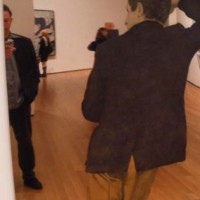
Paul Elsam
University of Teesside / Academy of Live and Recorded Arts
I suppose I am primarily interested in voice and speech as features of communication within the training of actors and presenters. For me there are two key areas: (i) speech as an aspect of apparent spontaneity - provoked by applying conscious psychological techniques that draw mainly on the ideas of Konstantin Stanislavski; and (ii) the consciously creative use of voice and speech - both to enhance communication, and to highlight a speaker’s versatility.
-
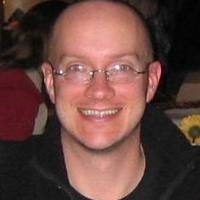
Paul Foulkes
University of York
My research interests are in language variation and change, phonetics, phonology, sociophonetics, first language acquisition and forensic phonetics. Most of the work I do focuses on quantitative analysis of natural speech, with a view to understanding systematic phonetic variation and its implications for phonological and linguistic theory. I undertake both research and casework in forensic speaker identification as a consultant for JP French Associates.
-
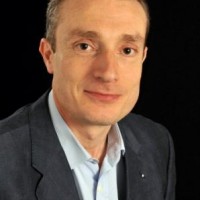
James Gilbert
University of Hull
I'm an unreformed 'techie', having started out as an electronic engineer and only got interested in speech in the last few years. My current interest is in restoring speech for people who have lost the ability due to laryngectomy etc. I am looking at systems which measure the movement of a persons articulators and try to determine their intended speech. Developing these systems throws up a lot of interesting questions about what people want and expect from speech, and a lot of issues with existing speech aids.
-
Jason Hayhurst
University of Hull
-
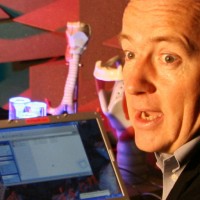
David Howard
University of York
I am interested in voice analysis and synthesis with particular reference to the singing voice. We are working on digital waveguide synthesis which models the oral tract and enables its shape to be varied thus creating different vowel sounds. This can be done in real-time and one interest is to create a 21st century von Kempelin machine to drive this synthesis system. I regularly give public lectures on voice production, usually in relation to singing, and I have a number of models and demonstrations that I use including medical larynx and speech organ models, acrylic tubes for 5 vowels with an electrolarynx source (which can also be used on one's neck), a Digitech Vocalist (four part harmony from one singer with a MIDI keyboard), various acoustic analysis software for voice analysis and an electrolaryngograph system for vocal fold vibration monitoring. I was the presenter for "Voice" for BBC4-T, co-presenter for "Castrato" for BBC4-TV and I appeared on the "Hidden Talent Show" for Channel 4 on opera singing. For more information please visit: WORK WEB: http://www-users.york.ac.uk/~dmh8 MEDIA COVERAGE: http://www.davidmhoward.com/media.htm BOOKS PUBLISHED: http://www.davidmhoward.com/books.htm YOUTUBE VIDEOS: http://www.davidmhoward.com/youtube.htm YORK MINSTER EVENSONG CHOIR: http://www.davidmhoward.com/VoYV.htm
-
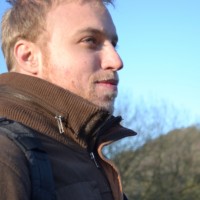
Ben Johnson
Apollo Creative
I graduated with a First Class Honours in Creative Music Technology (BA) at the University of Hull, specialising in interactive technology with a focus on installations. I now work on the Apollo Ensemble which uses switches and sensors to control sounds, lights, images and videos. Its many applications include performing arts, sensory rooms, and music therapy. My interest in speech synthesis has come from the Ensemble which allows those with disabilities to perform and interact.
-
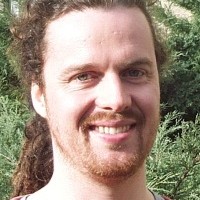
Simon King
University of Edinburgh
My research interests span both automatic speech recognition and speech synthesis. In speech recognition, I am looking at new acoustic models, such as Linear Dynamical Models, factorial-HMMs and other graphical models that can represent speech not as 'beads on a string' but as streams of interacting factors. I've investigated ways to automatically find an inventory of suitable units to model, as well as working on other alterntives to phonetic units, such as graphemes. One long-standing interest is the use of phonological/acoustic/articulatory features andarticulatory measurement data as a tool to develop models of speech. In speech synthesis, I work on both unit selection methods and HMM-based speech synthesis. In both of these areas, the definition of the unit of speech is crucial. Both typically use context-dependent phonemes or diphones so, in this context, we can gain some insight into the basic building blocks of speech by asking "What contextual features must we model?" In unit selection, this means learning the target cost and in HMM-based speech synthesis, it relates to the clustering of acoustically similar units. http://www.cstr.ed.ac.uk
-
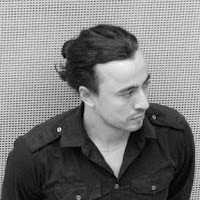
Pierre Lanchantin
University of Cambridge
Pierre is a Research Associate in the Speech Research Group at the Cambridge University Engineering Department (CUED). His research interests include statistical modeling of signals, speech processing and their applications to Music. During his PhD, he studied generalizations of Hidden Markov Models (HMM) called Pairwise and Triplet Markov chains with applications to image segmentation. He then directed his research toward speech processing and joined the analysis/synthesis team at IRCAM, working on HMM-based speech segmentation, HMM-based speech synthesis and Voice Conversion with applications to Music. During his stay at IRCAM he regularly collaborated with musical assistants and composers.
-
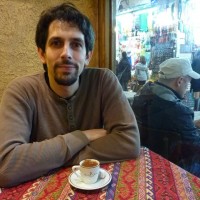
Javier Latorre
Toshiba Research Europe Limited
Research Engineer at Toshiba Speech Technology Group in Cambridge. Currently my main interest is in ways to factorize the speech signal to allow a speech synthesizer speaking with any combination of voice, expression, accent, language, ... or even to make it sing. Before moving to Cambridge I worked for almost 3 years in Toshiba Japan, where I worked mainly on prosody modeling for TTS.
-
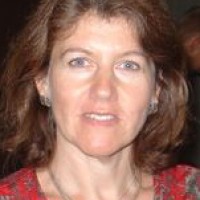
Ann Light
Northumbria University
I am professor of design at Northumbria University and a qualitative researcher, interested in how people relate to each other in contemporary society and the impact of present/future design choices. A fascination with digital mediation led me to make studies of websites and online discussion as early as 1995, and I now focus on mobile and ubiquitous contexts of use. An important element of my work has been looking at design globally - with projects in Ghana, India, Chile and Uganda, workshops on six continents, and a role advising the European Union on the future of the Internet. I am particularly interested in the relation of technology to personhood and identity, both at societal level and in the way that we make meaning in our own lives.
-
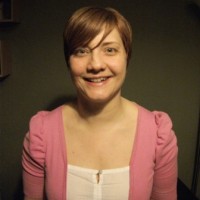
Lucy Lowson
GLOSSA
I am an Independent Speech & Language Therapist working in the Yorkshire region. My journey to speech therapy took me via a Linguistics degree initially, work placements in phonetics labs and the idea that I would like to work in speech research. I decided that I liked the clinical side of work and patient contact so my speech passion drove me to another degree, this time in Language Pathology, to enable me to work as a Speech and Language Therapist. I have been doing that for nearly 8 years now and love it! But I still hold a torch for research... I established Glossa in 2008 to offer specialist advice, assessment, therapy, training, support and facilitation for adults with acquired communication and/or swallowing difficulties and their families/carers. I have experience of working with a wide range of difficulties including stammering, voice disorders, aphasia, motor speech disorders and dysphagia as a result of varied aetiologies for example, progressive neurological conditions, stroke, learning disability and head injury. My ethos is one of functionality and practicality aiming to help clients achieve a potential that they are happy and effective with. I also have experience in professional training and academic teaching that allows me to raise awareness and to educate other professionals, carers and students about communication and swallowing difficulties.
-
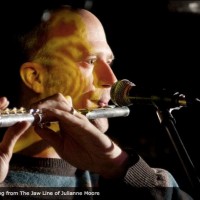
Robert Mackay
University of Hull
Rob Mackay is a Senior Lecturer in Creative Music Technology at the University of Hull, Scarborough Campus. He is also a composer, sound artist and performer. He obtained a degree in Geology and Music at the University of Keele, studying composition there with Mike Vaughan, before going on to complete a Masters and PhD with Andrew Lewis at the University of Wales, Bangor. Recent projects have moved towards a more cross-disciplinary approach, including theatre, text in performance, audio/visual installation work, and human/computer interaction. Prizes and honours include: IMEB Bourges (1997 and 2001); EAR99 from Hungarian Radio (1999); Confluencias (2003); La Muse en Circuit (2004 and 2006). His work has received over 100 performances in 16 countries (including several performances on BBC Radio 3). He has played, written and produced in a number of bands and ensembles, including the Welsh Hip-Hop collective 'Tystion' with whom he collaborated alongside John Cale on the film ‘A Beautiful Mistake’, as well as recording two John Peel sessions on BBC Radio 1 and supporting international acts, including PJ Harvey. He has also worked as an actor in various UK theatre productions. More information and pieces at: www.myspace.com/robflute and www.digital-music-archives.com.
-
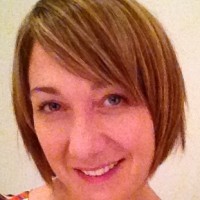
Gill Main
I am a speech and language therapist, and come to CreST with a particular interest in assistive speech technologies and wider Alternative and Augmentative Communication (AAC). My current caseload includes a range of acquired and progressive neurological conditions within both inpatient and community settings. My role involves assessing suitability for AAC technology provision, as well as implementing and incorporating any new technology within a patient’s communicative environment. My background is in performance and vocal pedagogy. Before re-training as an speech and language therapist I held the position of Deputy Head of Vocal Studies at London Studio Centre (University of the Arts, London) and ran a busy teaching practice in the West End. I am on the teaching staff for Vocal Process Ltd and teach public courses on vocal anatomy and singing.
-
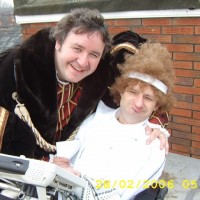
Alan Martin
Mouse on the Move Workshops
Alan believes that he is the only creative dance practitioner in the UK who uses both an electric wheelchair and an electronic communication aid. Since 2004, Alan has been self employed, running a business which provides accessible creative dance, music making, and Light Painting with dance. He also composes music for his performances using computer software, and has worked as an actor(BBC3), model, and disability issues presenter. Gaining his professional qualifications quite late in life,( following the provision of his first speech aid at age 31years,) a student of LIPA, Bolton College, Birkenhead college, and many other establishments, Alan's inspiration came following training in Forum Theatre, with Augusto Boal. He uses this technique in many of his equality and disability rights training sessions. Alan is passionate about full inclusion, in all aspects of life, and believes strongly in the power of creative dance for all people. Since 1994, when Alan's friends fundraised to buy him his first communication aid, (there being no statutory provision of such equipment) and realising the difference it has made to his own life, he underpins all his activities by raising awareness of the human rights aspect of communication aids for all who need them.
-
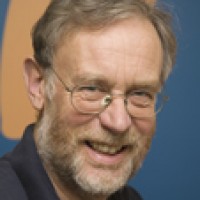
David Mason
Currently Non-Executive Director of Toby Churchill Ltd. http://www.toby-churchill.com/ http://www.toby-churchill.com/en/news/david-mason-appointed-non-executive-director-july-2011 I joined Toby Churchill Ltd as a member of the development team in 2001. Previous work has ranged from aerospace and defence systems to robotics to Assistive Technology.
-
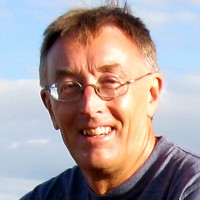
Roger Moore
University of Sheffield
Professor of Spoken Language Processing in the Speech and Hearing Group at Sheffield University. http://www.dcs.shef.ac.uk/~roger/
-
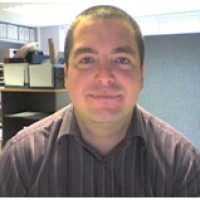
Darren Mundy
University of Hull
Dr Darren Mundy is the Deputy Head, Director of Undergraduate Studies and Lecturer in Digital Media for the School of Arts and New Media at the University of Hull. His research interests include Internet security, e-government and educational technologies. He obtained a First Class Honours Degree (2000) and a PhD (2004) from the University of Salford’s 5* rated Information Systems Institute. Darren has written over forty journal and conference papers and a book chapter entitled “Secure Knowledge Management in Health Care Organizations”. At present, he is also Senior Advisor for Innovations in Learning and Teaching within the University of Hull’s Learning, Teaching and Support Unit, and he integrates social media techniques and theories into his own teaching practice whenever possible.
-
George Newell
-
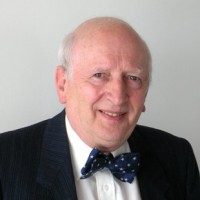
Alan Newell MBE, FRSE.
University of Dundee, School of Computing
Alan Newell is an Emeritus Professor at the School of Computing at Dundee University. This contains one of the largest academic groups in the world researching into computer and communication systems for older and disabled people. He has published widely in this field, including his recent book: “Design and the Digital Divide: insights from 40 years in Computer Support for Older and Disabled People” (Morgan & Claypool 2011). His current interest is the use of professional theatre to raise awareness and facilitate discussion on these issues. He was appointed a Member of the Order of the British Empire for contributions to computer-based systems for people with disabilities, and in 2011 was presented with the (US) Association for Computing Machinery SIGCHI Social Impact Award. A former Deputy Principal of the University, Alan is a Fellow of the Royal Society of Edinburgh, the Association for Computing Machinery and the British Computer Society, and an Honorary Fellow Royal College of Speech and Language Therapists.
-
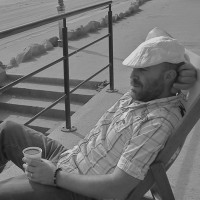
Rowan Oliver
University of Hull
My musicological research deals primarily with rhythm/sound in groove and the performer’s relationship with time. This research seems to intersect with CreST in terms of individual expressivity. I am Director of Studies for the Creative Music Technology subject area at the University of Hull. Alongside my academic career I continue to record and perform internationally as a multi-instrumentalist session musician, and I also compose for film. Prior to becoming a lecturer I spent several years touring the world as the drummer with Goldfrapp (amongst various musical exploits). My new role involves wearing far less lycra, which is a relief to both myself and the students.
-
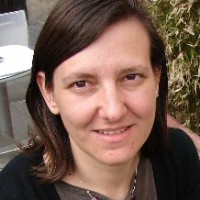
Sandra Pauletto
University of York
I am a Lecturer in Sound Design in the Department of Theatre, Film and Television at York University. My interests in voice include: voice sound design, voice expressivity, cinematic voices. Other research interests include: sonic interaction design, auditory displays, sound design and sound synthesis. See http://www.york.ac.uk/tftv/staff/pauletto/
-
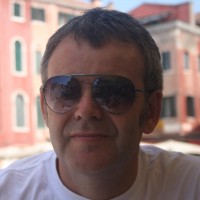
Barry Perks
International Service
Barry Perks has 35 years of experience in graphics, theatre, publishing, exhibition and new media design and excels in project conceptualisation and management, client liaison and, team building. He works for International Service, a UK-based development agency and is a director of Spellzone an on-line English spelling course. He has worked in Nigeria, Mali, Burkina Faso, Brazil, Bolivia and in the UK delivering art and sport related workshops and events.
-
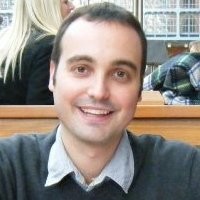
Chris Pidcock
CereProc Limited
I'm a founder of CereProc, the Edinburgh-based text-to-speech company. CereProc was set up to create natural, emotional, synthetic voices, and to improve the speed with which new voices can be built. http://www.cereproc.com
-
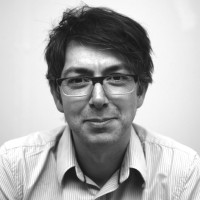
Graham Pullin
University of Dundee
Graham Pullin is an interaction designer and author of Design Meets Disability (The MIT Press, 2009). He is Course Director of Digital Interaction Design at the University of Dundee, where his research is exploring more expressive communication aids for people who cannot speak through projects such as Six Speaking Chairs and Speech Hedge. Previously, Graham was a Studio Head at the design consultancy IDEO, leading multidisciplinary teams on projects from (the very commercial) Vodafone Simply mobile phones to the provocative Social Mobiles. He has studied/practiced design at the Royal College of Art, phonetics at the University of Westminster (an obsession which may stem from having seen My Fair Lady at too formative an age), assistive technology at the Bath Institute of Medical Engineering and engineering at Oxford University.
-
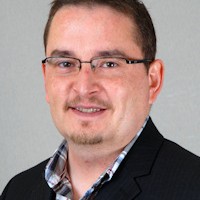
Darren Reed
University of York
Darren Reed is a Social Scientist who is interested in the performative aspects of social interaction in everyday life. His research areas include the use of gestures and embodiment in music masterclasses as pedagogic environments. He has a history of work in communication through technology, having worked in areas such as human computer interaction, inclusive design, and trust in and dependability of transport information systems. Darren was a professional singer in an earlier career, and his first professional qualification is as a dance teacher.
-
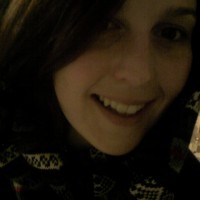
Hannah Rolfe
I am a recent graduate from Bournemouth University with an MA in Radio Production. At present I am on the final write up stage of a Post Grad. research project between Bournemouth University and Age UK, aiding in the start up of Radio Clubs for the over 50s. I also volunteer as a production assistant for an Undiscovered music show feature on Scarborough's 'Yorkshire Coast radio' and am looking forward to working as a Sound Assistant for the 2012 Olympic Games. My Production interests range from Documentary to Drama, with emphasis on recording live and real sound effects, true stories and distinctive voices.
-
Lucy Swain
-
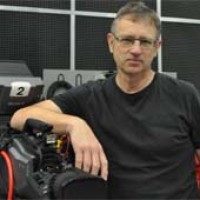
Patrick Titley
University of York, Dept of Theatre, Film and Television
I'm a producer/director with over 30 years experience in TV, with credits that include science shows for the BBC and Discovery Channel, various dramas including a stint on Emmerdale, and a show for Channel 5 described by the Daily Mail as the "worst television programme ever made".
-
Christophe Veaux
University of Edinburgh
-
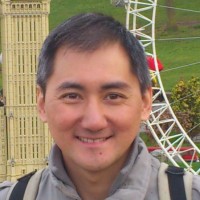
Vincent Wan
Toshiba Research Europe Limited
Research Engineer in the Speech Technology Group in Cambridge. I am currently working on expressive controlable speech synthesis. Before joining Toshiba, I worked on speech recognition and speaker identification at the Speech and Hearing Group of the University of Sheffield.
-
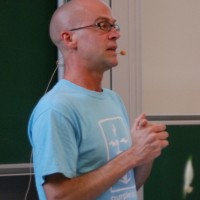
Jez Wells
University of York
I am a lecturer in Music Technology at the University of York and a freelance recording engineer. My research interests include spectral modelling of sound, physical modelling for room acoustics simulation and intelligent real-time processing for the recording studio - the voice permeates each of these to a certain extent, hence my interest and involvement in this group. You can find out more about me at my web site: www.jezwells.org Until recently I was a Royal Academy of Engineering Public Engagement Fellow and you can read my blog about this here: http://jezwells.blogspot.com/
-
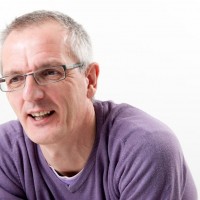
P C Wright
University of Newcastle
Pete Wright is Professor of Social Computing at Newcastle University. He has over twenty years of experience as a human-centred design researcher and over 100 publications in the area of human-computer interaction, and culture, creativity and interaction design. He is internationally known in the HCI community for his research into theory and methods for experience-centred design. His current projects focus on bringing experience-centred design principles to health-related services and technologies. At Newcastle he is a professor in the Human Computer Interaction group and a resident of Culture Lab, and lead for the design perspective of the EPSRC Social Inclusion and the Digital Economy (SiDE) hub.